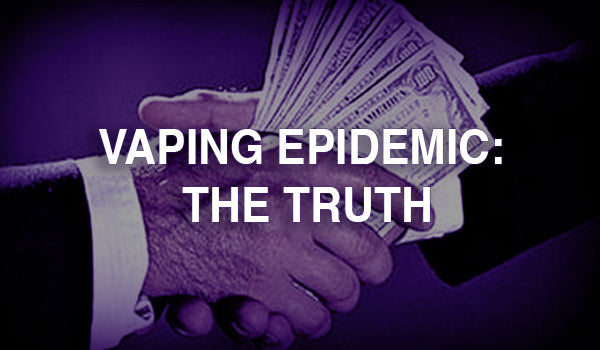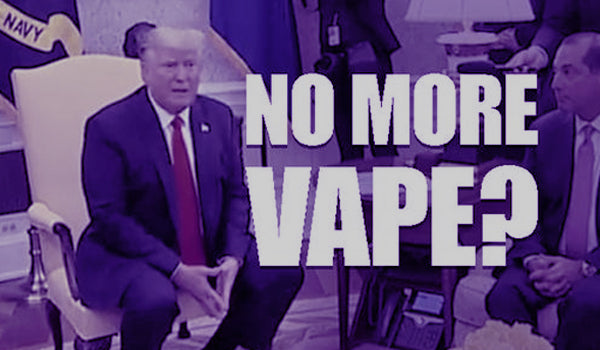
The Truth About the Vaping Epidemic – Governments Dirty Little Secrets Revealed
Speak the words 'vape' or 'e-cig' to the average American and more than likely their minds will sway to thoughts of a dangerous product that is causing mass illness and even deaths. This line of thinking is understandable, with the media reporting on vaping related lung illnesses that have swept the entire country over the last two months.
Nightly television broadcasts and social media newsfeeds are currently filled with news of a supposed vaping epidemic that has struck our nation. But is there more than meets the eye? Is vaping the real culprit? And is there a more sinister plan in the works to push a media narrative slanted against the growing vape industry?
To help you identify what the real motivations are for this current push against vaping on a state and federal level, we must first understand who stands to benefit the most from vapes downfall. Furthermore, we must give a clear history of how big tobacco and state governments made a deal that you have probably never heard of.
In 1998 the big tobacco companies were collectively sued by state attorney general across this country for the harm cigarettes were causing individuals. Big tobacco companies decided to take the action of settling all the law suits by agreeing to pay the states a percentage of their profits every single year moving forward. This agreement is known as the MSA, or Master Settlement Agreement.
Simply stated, the more the tobacco companies earn, the more the states get paid every year. These tobacco payments were intended to go towards states anti-smoking campaigns and prevention programs. Although, this is not the case. States spend the majority of their big tobacco money on things like infrastructure and golf courses.
Some of the states made the decision that they did not want to wait for their yearly big tobacco payments. These states ended up going to wall-street and selling bonds so that they could get their money up front. The problem with this action is some states ended up borrowing too much and deferred too many interest payments. Now, the MSA money that they mortgaged, won’t cover what they owe.
In the last two decades cigarette sales have declined by almost 50%. This has compounded the issue for states that can’t cover the money they owe. So, because of decrease in cigarette sales, states that sold bonds are not receiving the amount of money they projected to earn. These states now risk defaulting.

Electronic nicotine devices seem to have also hastened the decline of traditional cigarette sales. Because of this, state and federal legislatures have become the easy targets for public health advocacy groups.
These tobacco control groups require funding to survive. This funding is provided to tobacco control groups by the United States government. In return for the government funding the tobacco control groups lobby on behalf of the government to pass initiatives and raise taxes. These groups have been conflating the illness and deaths linked to black market THC products to nicotine vaping devices. This has resulted in panic and statewide vaping bans.
There is a concern that the removal of these vaping products from the market will result in people going back to smoking. But why would tobacco control groups want to risk individuals going back to smoking? Because if smoking was eradicated tobacco control groups would be out of a job. When you follow the dots the connections are easy to make. For example, the president of Tobacco Free Kids, Matt Myers, was instrumental in negotiating the MSA. The MSA pays the states and these MSA funds actually help to fund the exact programs Myers and others are leading.
Politicians are aware of the decline in revenue in the big tobacco industry. Because of this, they are inclined to take tobacco control groups at their word and institute bans on vaping products.
Ultimately, the truth is never that simple. There are a lot of moving parts and the influence runs deep in Washington. Although, one thing that is easy to see is the states are financially in a bad position because the tobacco revenue they expected to generate is no longer coming in. The question is are they willing to destroy an industry and the lives of former smokers over greed.









Leave a comment
This site is protected by hCaptcha and the hCaptcha Privacy Policy and Terms of Service apply.